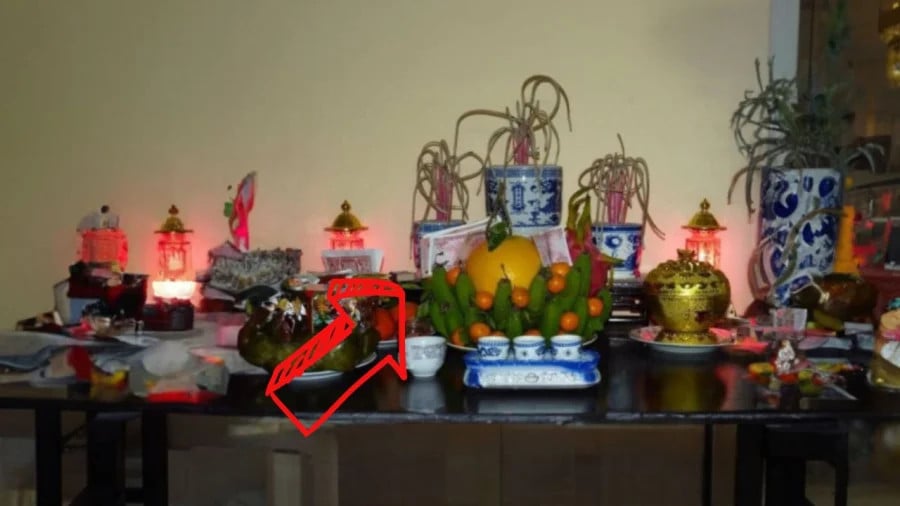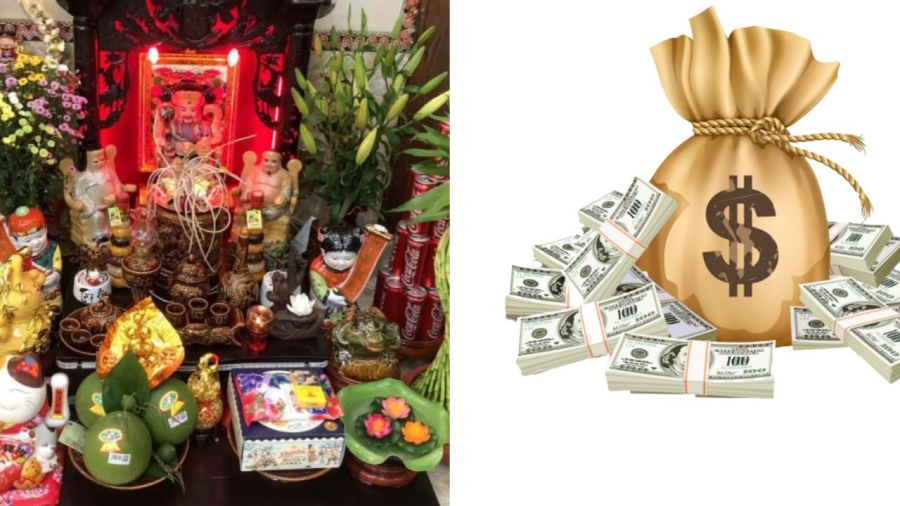Is it truly effective to place real money on an altar?
In worship, fruits, betel and areca nuts, flowers, liquor, tea, and vegetarian or meat offerings are common offerings presented to ancestors, gods, and the Buddha, seeking their blessings and protection. Offerings symbolize the worshipper’s utmost devotion to the divine, and they also aim to attract good fortune.
Many people offer real money, hoping to attract more wealth, believing that it will bring good luck in their endeavors, leading to prosperity and financial success. Some worshippers place real money on the altar, then take it as a blessing and put it in their wallets as a good luck charm, expecting the money to multiply. However, according to feng shui experts, this practice is unnecessary and should be avoided for the following reasons:

– Money is not considered a worship item. If it is not regarded as an offering, placing it on the altar is merely decorative and holds no spiritual significance. Therefore, whether worshipping ancestors or deities, placing real money on the altar does not hold much spiritual significance. In Buddhist temples, the focus is on guiding people towards enlightenment and following the law of karma. Thus, it is not advisable to place real money or paper offerings on the altar; instead, only vegetarian offerings and flowers should be presented. Real money can be donated to the temple’s donation box as a meritorious act.
– Real money is a medium of exchange with a long circulation history, making it prone to bacterial contamination. Even new banknotes may contain chemicals from the production process. Therefore, placing money, especially old and well-circulated notes, on the altar can be considered a breach of feng shui principles due to the potential for bacterial contamination and dirtiness. The worship area should be kept clean to maintain a harmonious energy field.
– From a social perspective, placing real money on an altar can appear vulgar. Additionally, if the denomination is high, it may attract unwanted attention and create a potential security risk, leading to suspicion and disharmony within the family or community.
– Real money is also flammable, and placing it too close to the incense burner could lead to accidental fires, resulting in significant feng shui taboos.
– According to feng shui principles, money should be in circulation to attract wealth. Conversely, money that remains stagnant in one place does not facilitate the generation of prosperity. Therefore, taking a blessed banknote and keeping it in your wallet in the hope of perpetual financial prosperity contradicts the fundamental feng shui concept of money circulation.

Things to Consider When Placing Real Money on an Altar
The decision to place real money on an altar depends on your personal beliefs and faith. However, if you choose to do so, keep the following in mind:
– Avoid using high denominations.
– Preferably use new money to reduce the risk of bacterial contamination and unpleasant odors that may affect the energy field of the worship area.
– Refrain from using denominations that are no longer in circulation, such as the 500 VND note.
– Avoid using foreign currency on the altar.
This information is for reference only and is subject to individual interpretation.



































